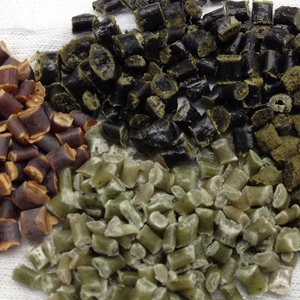Cereplast files voluntary petition for Chapter 11 protection




Cereplast Inc.
February 18, 2014
BY Erin Krueger
On Feb. 17, Cereplast Inc. announced it has filed a voluntary petition for Chapter 11 bankruptcy. According to information released by the company, it has taken his action to strengthen its balance sheet, clean up its capitalization structure and gain financial flexibility as it continues to realign its operations. The company said it intends to continue to operate during the reorganization process. Biomass Magazine was unable to reach a representative of the company for further comment on the filing.
Documents filed with the U.S. Bankruptcy Court for the Southern District of Indiana show the company filed the bankruptcy petition on Feb. 10. On Feb. 14, creditor Horizon Technology Finance Inc. filed a motion convert the case to a Chapter 7 bankruptcy case. While Chapter 11 bankruptcy governs the reorganization of a debtor, Chapter 7 governs the process of liquidation.
According to Horizon’s filing, it gave notice to Cereplast of a sale of collateral under the Uniform Commercial Code on Jan. 23. The sale was scheduled for Feb. 11. The filing goes no to say Cereplast sought to restrain the UCC sale, but the request for a restraining order was denied on Feb. 10, the same day Cereplast filed the Chapter 11 petition. The court documents also specific the Horizon's notice of the UCC sale generated interested bidders and at least one of those bidders expressed interest in continuing operations at Cereplast’s Seymour facility.
Advertisement
Advertisement
Cereplast filed its most recently quarterly report with the U.S. Securities and Exchange Commission in November. In that report, the company reported total current assets of $7.175 million and total current liabilities of $29.104 million. Gross sales for the three months ended Sept. 30 were $438,000 and $2.135 million for the first three quarters of 2013. Cereplast incurred a net loss of $34 million for the nine months ended Sept. 30 and reported an accumulated deficit of $121.1 million as of Sept. 30.
In a statement issued announcing the Chapter 11 filing, Frederic Sheer, CEO of Cereplast, said the company intends to use the reorganization process to help implement its plan to lower costs, stabilize its business grow revenue and diversify its product lines.
Advertisement
Advertisement
"We have taken a number of steps to improve our operations over the past few months and we were making great progress; however, the lack of traction of bioplastics demand in the United States, the repetitive delays in implementation of the bioplastic regulation in Europe and especially in Italy combined with the legal problems created by several of our lenders made clear to our Board that reorganization was the proper path forward. We believe that this reorganization will enable us to reduce our debt and implement operational changes, while maintaining our commitment to the environment,” Sheer said in the release. "We appreciate the ongoing dedication of our employees, whose hard work is critical to our success and the future of our company. Regrettably, as a result of this reorganization, jobs will be impacted during the transition period."
According to Cereplast as part of the reorganization, it is taking steps to align its cost structure with the realities of market demand and expects to redirect its operations in two directions: toward traditional compounded products and recycling polyolefin and bioplastics made of diversified feestock, including algae and polylactic acid.
In conjunction with the reorganization, Cereplast also said it is actively negotiating debtor-in-possession financing from several interested parties. On court approval, the new financing and cash generated from the company’s ongoing operations will be used to support the business during the reorganization process. Cereplast also indicated that it intends to file various motions with the court in, including requests to continue paying employee wages and benefits.
Related Stories
The U.S. Department of Energy Bioenergy Technologies Office (BETO) announced up to $23 million in funding to support research and development (R&D) of domestic chemicals and fuels from biomass and waste resources.
The U.S. DOE has announced its intent to issue funding to support high-impact research and development (R&D) projects in two priority areas: sustainable propane and renewable chemicals and algal system cultivation and preprocessing.
Sens. Sherrod Brown, D-Ohio, and Pete Ricketts, R-Neb., in August introduced the Renewable Chemicals Act, a bill that aims to create a tax credit to support the production of biobased chemicals.
The Chemical Catalysis for Bioenergy Consortium, a consortium of the U.S. DOE’s Bioenergy Technologies Office, has launched an effort that aims to gather community input on the development of new biomass processing facilities.
USDA on March 8 celebrated the second annual National Biobased Products Day, a celebration to raise public awareness of biobased products, their benefits and their contributions to the U.S. economy and rural communities.
Upcoming Events










